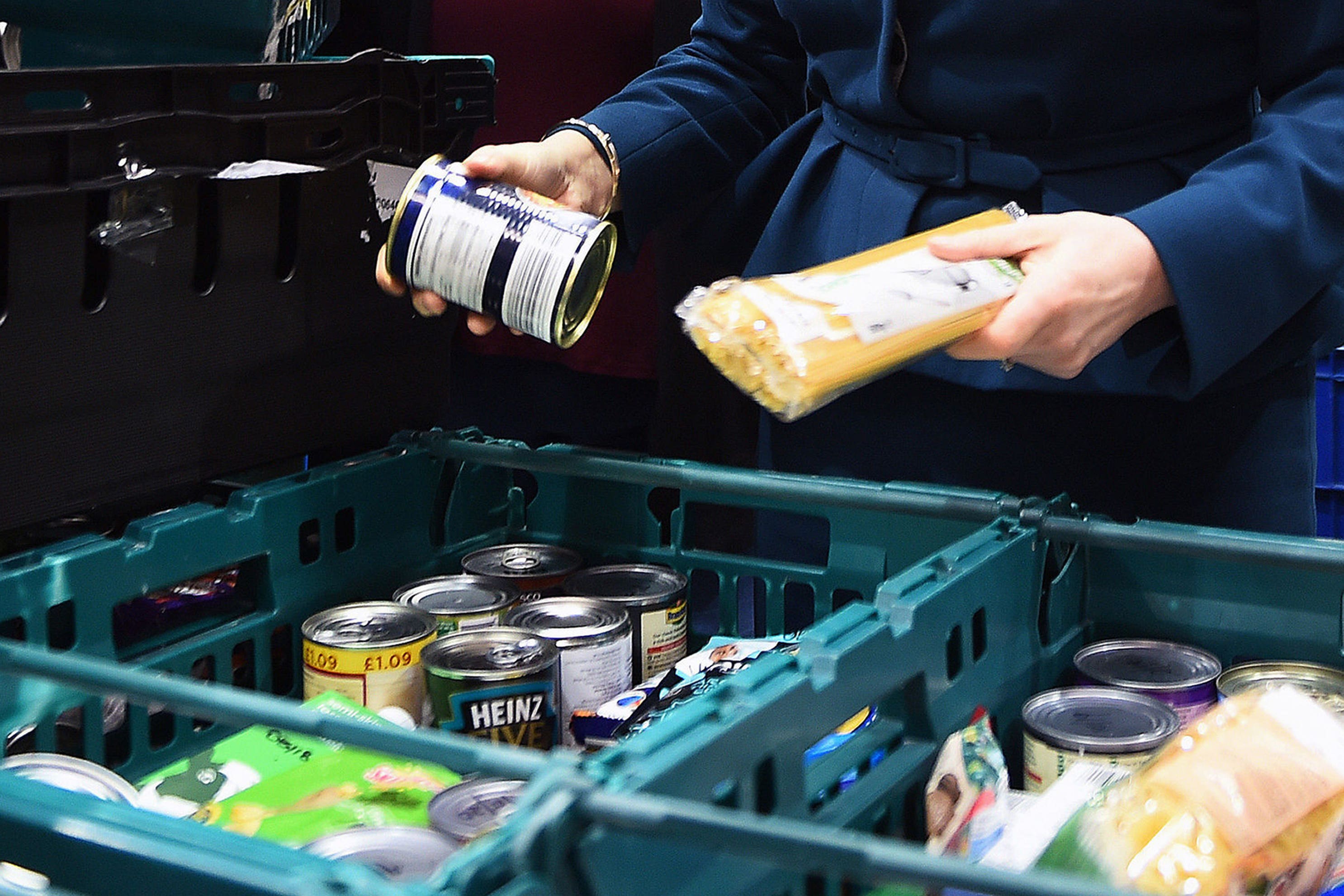Reality of how cost of living crisis impacts children laid bare in shocking new report
23 per cent of parents reported difficulties providing food for their family due to rising costs in the last four months, up from 3 per cent in October 2022

Your support helps us to tell the story
From reproductive rights to climate change to Big Tech, The Independent is on the ground when the story is developing. Whether it's investigating the financials of Elon Musk's pro-Trump PAC or producing our latest documentary, 'The A Word', which shines a light on the American women fighting for reproductive rights, we know how important it is to parse out the facts from the messaging.
At such a critical moment in US history, we need reporters on the ground. Your donation allows us to keep sending journalists to speak to both sides of the story.
The Independent is trusted by Americans across the entire political spectrum. And unlike many other quality news outlets, we choose not to lock Americans out of our reporting and analysis with paywalls. We believe quality journalism should be available to everyone, paid for by those who can afford it.
Your support makes all the difference.Parents are struggling to feed their children in increasing numbers, new research suggests.
Some 23 per cent of parents reported difficulties providing for their families due to rising costs in the last four months, up from 3 per cent in October 2022.
This and other shocking findings were published today in children’s charity Barnado’s new report, A Crisis on Our Doorstep. Alongside YouGov, the charity surveyed 1,010 parents and revealed the impact of the cost of living crisis on families over the winter period.
49 per cent of parents said they were worried about not being able to keep the home warm for their children, Barnardo’s found. It also found that 30 per cent worried about becoming homeless and 1 in 7 have been forced to share their beds with their children.
Mother-of-two Sarah, 37, from Birmingham, told the charity the rising cost of living in private rented accomodation has forced her to choose between heating and eating.
She said: “It was very hard with the prices rises and everything. In November, we were going with no heating so we could cook. I was in tears. What do you do? Put the heating on or feed the kids? I bought electrical stuff and socks and blankets and jumpers because we were always cold.”
Helen, a 22-year-old woman from Northern Ireland also described sitting “with blankets and coats” at night because her mother, who is receiving Universal Credit, can only afford to put the heating on for half an hour a day.
The report comes amid growing pressure on the government to support families struggling amid soaring inflation. Chancellor Jeremy Hunt is to unveil his spring budget next week in which he is expected to extend government support pay household bills, cancelling a planned average £500 price hike.
Barnardo’s also surveyed 316 children about their experiences. 52 per cent said they worried about their families not having enough money while 16 per cent said they have gone hungry or skipped meals over the winter.
An unnamed mother told the charity that her finances have come under strain since her husband was diagnosed with a rare brain condition in 2013 and forced to move to part time work.
“We now have to plan ahead for new or replacement items in the home,” she said. “My daughter started her periods very young. She has found it very difficult to manage and has been fragile and shy on many occasions surrounding this subject. She was unable to verbalise that the mattresses on the bunk beds she shares with her brother have been stained. I tried to scrub them as best I can but they are permanently soiled.”
Meanwhile, a charity worker in Newport, Wales reported on “mould” she saw in the home of a mother she had been supporting with domestic abuse: “You can smell the mould when you walk in the house, it’s quite strong,” she said.
“The mould is running up the walls and they’re sleeping in the same bed together even though her daughter is about four.”
“It’s quite hard sometimes with these issues because we see it so much we just get used to it,” she added.
Barnardo’s is calling on the government to extend free school meals to primary schools. The charity’s chief executive Lynn Perry said:
“Across the UK, Barnardo’s is supporting children who are slipping into poverty as a result of the cost-of-living crisis. Families who once had to choose between heating or eating are now worried about providing warm beds for their children or losing their homes altogether.
“As a charity we have responded by delivering clothes, appliances and vouchers to help thousands of families with everyday essentials. But we know this urgent support can only do so much.
A government spokesperson said they recognised “the pressures families are facing due to the rising cost of living”.
“We’re providing up to £1,350 of direct, targeted support to millions of vulnerable households in 2023-24 and uprating benefits by 10.1 per cent in April,” they added.
“Our Household Support Fund continues to help families with essential costs and we remain committed to helping families at risk of homelessness - over half a million households have been prevented from becoming homeless or supported into settled accommodation since 2018.
“Since 2010, the number of children receiving a free meal at school has increased by more than two million thanks to universal infant free school meals and protections for parents moving to Universal Credit. Our further investment in the National School Breakfast Programme also extends it for another year, backed by up to £30 million.”



Join our commenting forum
Join thought-provoking conversations, follow other Independent readers and see their replies
Comments